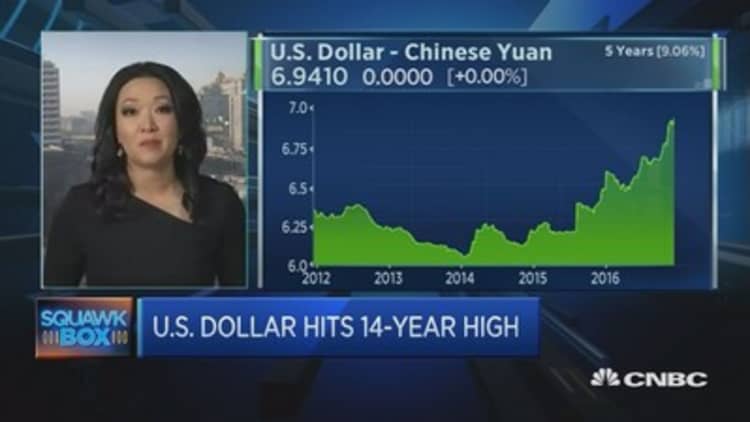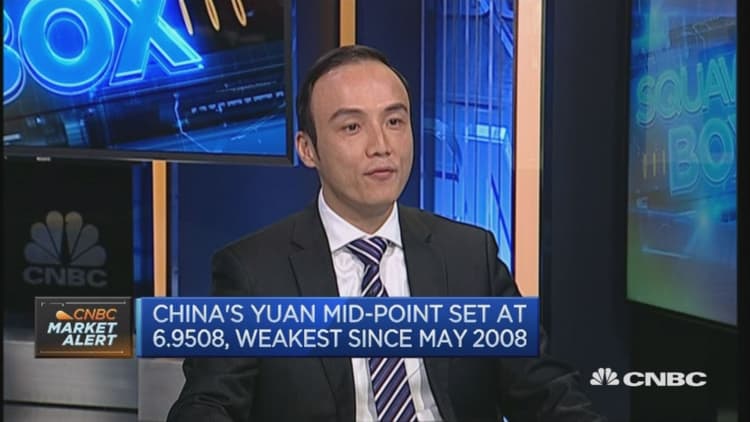


The People's Bank of China Friday set the mid-point rate for the at the lowest level in eight-and-a-half years as heavy capital outflows and a hawkish Federal Reserve raise currency pressures in the world's second-largest economy that the government says are manageable.
The yuan's mid-point was set at 6.9508 per dollar Friday, the lowest since May 2008, compared with 6.9289 on Thursday. China's central bank lets the yuan spot rate rise or fall a maximum of 2 percent against the dollar relative to the official fixing rate.
Haibin Zhu, China chief economist for JP Morgan, said a rally in the dollar following a Fed rate hike this week and a hawkish forecast of three increases in 2017 was the key reason for the yuan's depreciation alongside other currencies.
But China has moved in recent weeks to shore up its currency in the last few weeks on the back of gains in the greenback, including capital controls.
This week, the Chinese central bank has injected a net 250 billion yuan ($36 billion) for the week via open market operations, versus a net 535 yuan billion drain last week, according to Reuters.
The China Securities Journal said in a news report Friday that intervention in the foreign exchange market has been underway via big Chinese banks, which sold dollars and injected liquidity into the interbank market to support the yuan against the dollar on Thursday.
According to data from the U.S. Treasury Department, China's holdings of U.S. debt fell by $41.3 billion in October from a month ago to $1.115 trillion, the lowest since July 2010 as the PBOC dips into its reserves to support the currency. The sales led to Japan moving into the top spot as the largest holder of U.S. Treasurys, which China had held.
But Communist Party-run newspaper the People's Daily said in an editorial on Friday that there was "no need to worry too much" over whether the rate hikes would put further depreciation pressure on the yuan and increase capital outflows.
The days of "when the United States sneezes" the whole world catches a cold have drifted away. Liquidity in today's global markets is no longer all in U.S. dollars, the newspaper said.
"In the short term devaluation pressure on the yuan does exist, but in the long run, economic fundamentals decide the direction of the yuan exchange rate," it said.

